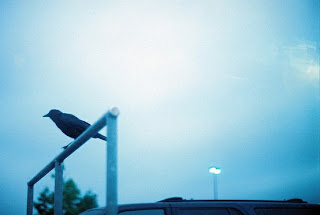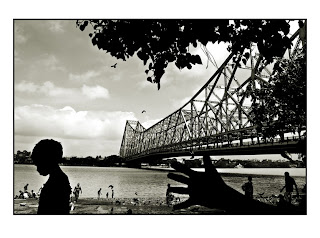“There are a lot of children in Afghanistan, but little childhood.”
“It may be unfair, but what happens in a few days, sometimes even a single day, can change the course of a whole lifetime...”
 Guess what? When people say "Try this! I swear it will change your life" mine changed half way through the book.
Guess what? When people say "Try this! I swear it will change your life" mine changed half way through the book.
It became those books that got into my head and took a long time to get out. This is a powerful, raw, emotional and honest novel. A good part of the power of the Kite Runner comes from its relevance and importance to today’s world.
'The Kite runner" is a tale of betrayal and redemption that rises above time and place while simultaneously remaining firmly anchored against the tumultuous backdrop of modern Afghanistan. The Afghanistan that very few of us know or even care to remember; at a time when its streets and people were not ravaged by the mania of religious extremism and war; when it was (believe it or not) a country of prosperity and liberal thought.
“You're gutless. It's how you were made. And that's not such a bad thing because your saving grace is that you've never lied to yourself about it. Not about that. Nothing wrong with cowardice as long as it comes with prudence. But when a coward stops remembering who he is... God help him.”
The story deals with themes of sacrifice, loyalty, father-son relationships, betrayal and eventual redemption. All the characters have their own secret sins and regrets, and as the novel progresses time manages to unearth even the most deeply buried ones.
“A part of me was hoping someone would wake up and hear, so I wouldn't have to live with this lie anymore. But no one woke up and in the silence that followed, I understood the nature of my new curse: I was going to get away with it.”
 It is a pretty famous book and a well known story, so I don't feel the need to summarize the story in the review. As to what I felt about the book - I found the book morally challenging. There are characters in the book that have been immensely praised by the narrator, infact they have been given such a powerful image that you would not dare question them on moral grounds. But later part proves whatever they did was out of guilt.
It is a pretty famous book and a well known story, so I don't feel the need to summarize the story in the review. As to what I felt about the book - I found the book morally challenging. There are characters in the book that have been immensely praised by the narrator, infact they have been given such a powerful image that you would not dare question them on moral grounds. But later part proves whatever they did was out of guilt.
“True redemption is...when guilt leads to good."
 “And this is what I want you to understand, that good, real good, was born out of your father's remorse. Sometimes, I thing everything he did, feeding the poor on the streets, building the orphanage, giving money to friends in need, it was all his way of redeeming himself. And that, I believe, is what true redemption is, Amir jan, when guilt leads to good.”
“And this is what I want you to understand, that good, real good, was born out of your father's remorse. Sometimes, I thing everything he did, feeding the poor on the streets, building the orphanage, giving money to friends in need, it was all his way of redeeming himself. And that, I believe, is what true redemption is, Amir jan, when guilt leads to good.”
“After everything he'd built, planned, fought for, fretted over, dreamed of, this was the summation of his life; one disappointing son and two suitcases.”
“For you, a thousand times over”
You also come across a character who is selfless, no matter what the situation is. It makes you wonder, makes you question, makes you doubt and eventually makes you feel disgusted with yourself. Which is a part of what happened to the main character in the book and the connection that you you form with the main character by relating it to your own life at this moment is priceless. Because all of us at some point in our life have been faced with better people who are cruelly good to us, making us question our own virtues.
Readers recognize their own lives in the dirty social secrets and the dignity, integrity and in the end strength of the characters. In one way or another, they’ve been there themselves, and are moved sometimes to tears by this recognition and what the writer has done with his words.
It is definitely one of those books that gets tucked in your thoughts, drives the moral driver in you, maybe not in executing the right turns but atleast helping you realize the wrong ones and feeling the imperative guilt for them. But mostly, this is a book about choices, mistakes and redemption.
“In the end, the world always wins. That's just the way of things.”
“Zindagi migzara (life goes on)”
I found this video online which completely defines the experience I had when reading the book, the thing that I loved about it was the right timing of the quotes :)
I found this video online which completely defines the experience I had when reading the book, the thing that I loved about it was the right timing of the quotes :)









